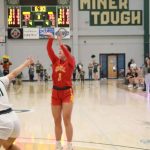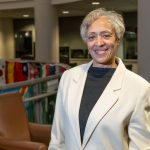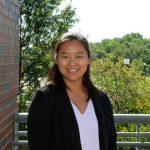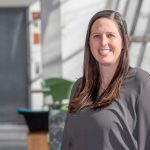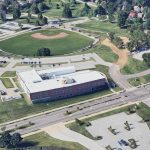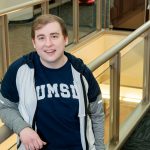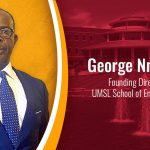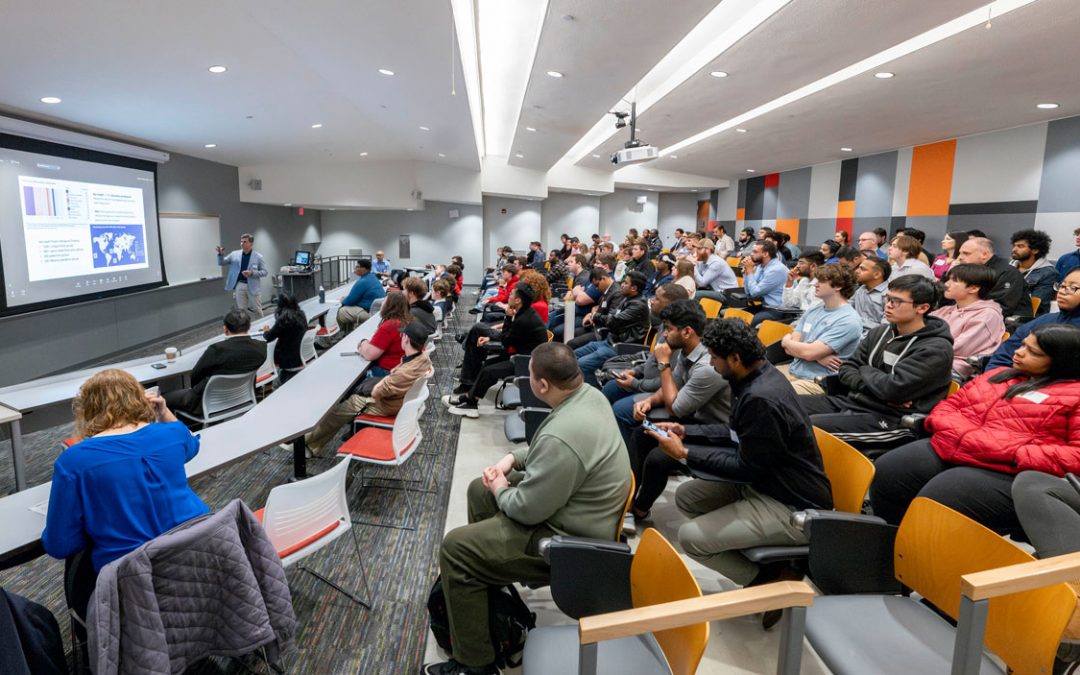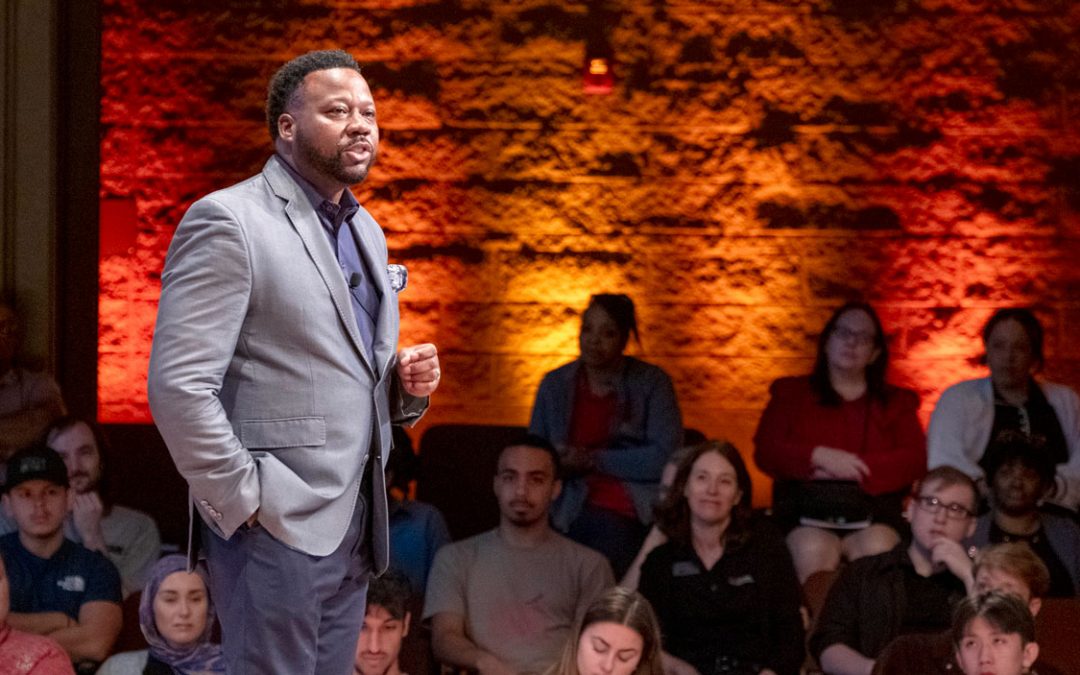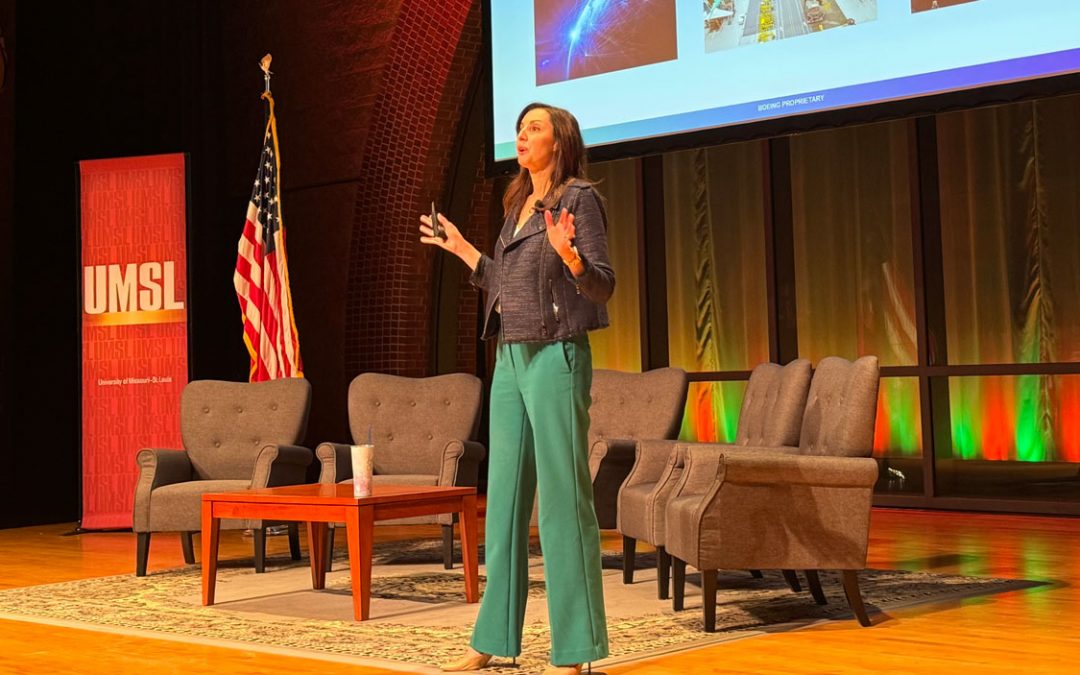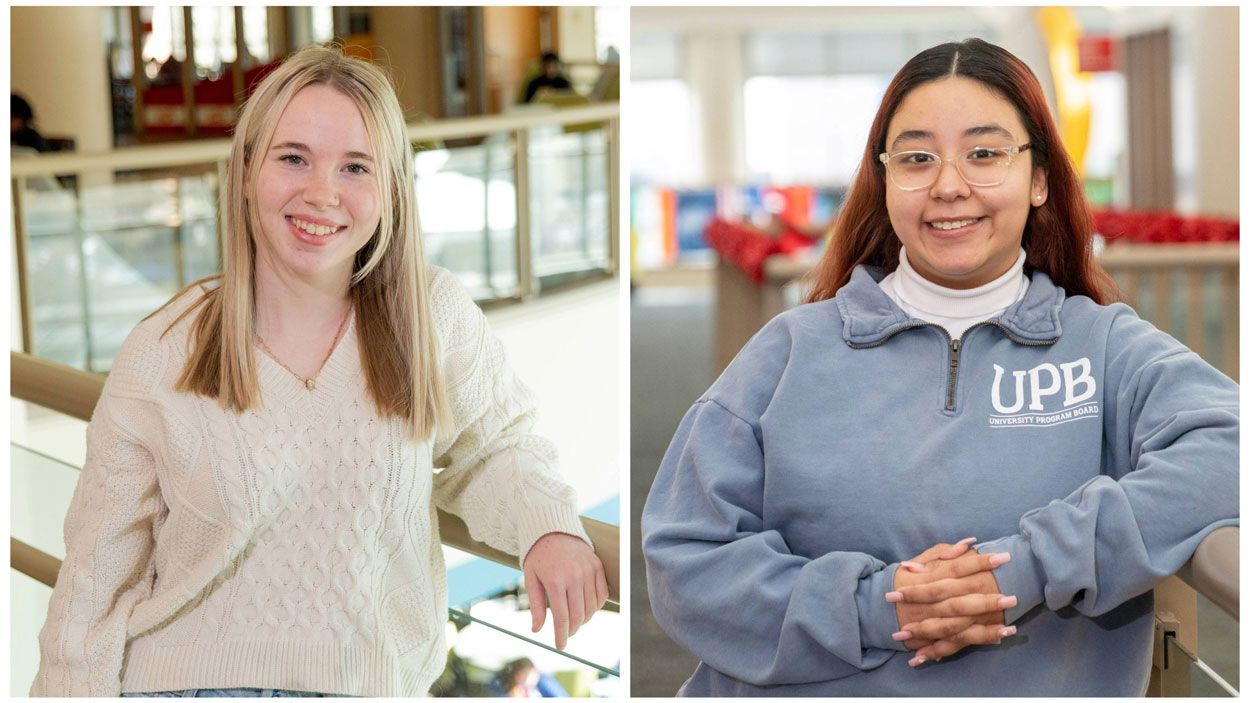
UMSL students Haley Alberson (left) and Yuli Perez created a potential certificate focused on LGBTQ health care for their final project in the “Healthcare Within the LGBTQIAA+ Community” course. (Photos by Derik Holtmann)
Yuli Perez felt like her eyes were opened every day while taking the new “Healthcare Within the LGBTQIAA+ Community” course at the University of Missouri–St. Louis.
Along with her classmates in the elective course, which was offered for the first time last fall through the College of Nursing and the Pierre Laclede Honors College, Perez learned about health disparities and injustices facing the LGBTQ community, including implicit bias, the lack of rights for same-sex parents and state laws targeting the queer community.
“Throughout the course, I went on learning horrible things that were impacting the queer community and I wanted to make an impact on this specific problem,” Perez said. “Many of my class peers were assessing how unfairly trans people and minorities are treated, especially in the medical field.”
Assistant Teaching Professor Debra D’Arcy coordinated the course, which came out of a simulation offered in the college’s community health course. She said research shows that nursing schools and medical schools do not offer many educational opportunities for the LGBTQ community. The discussion-based class featured lectures from people both inside UMSL, including College of Nursing faculty Sheila Grigsby and Tonya Haynes and College of Nursing Research department members Keri Jupka, and Kimberly Werner, as well as a few UMSL alumni and other members of the community.
Only about a third of the students who enrolled in the course were nursing majors, and D’Arcy said having students majoring in other areas such as cybersecurity, music and social work added depth to the course.
“It was reciprocal; everybody brought something to the table,” she said. “It broadens those opportunities for interprofessional learning and education. The nursing students were talking about how this will be really important for them as they move through their career and make sure that there aren’t health disparities among this marginalized community because many clients will not go back and get the care they need if they have a bad experience.”
At the end of the semester, students worked in groups to produce different call-to-action projects designed to increase access to health care for the LGBTQ community. One group comprised of a music major and nursing major composed, wrote and presented a song about microaggressions that people in the queer community are subjected to. Another group developed a flyer to increase awareness of the challenges faced by members of the queer community who are incarcerated. Yet another group wrote a children’s book designed to destigmatize LGBTQ parents and families.
“They were given license to be creative and to delve into something that really interested them,” D’Arcy said. “They did, and they ran with it.”
For the final project, Perez, a junior biology major, teamed up with fellow classmate Haley Alberson, a senior psychology major, to develop a hypothetical certificate, “PrideHealth,” focused on health care in the LGBTQ community. They researched similar minors and certificate programs at other universities and, after discussing the idea with UMSL faculty and staff, ultimately landed on a certificate as the most viable option. Alberson said the current goal is to make the program as versatile as possible to reach more people.
“I believe that this is something needed in many different school systems, not just UMSL,” Alberson said. “As the world grows, we learn more about the people in it, and it is important for us, as people in the health care system or working with clients of any sort, to understand them. No matter a person’s gender, sexuality, personality or beliefs, it is so important that we treat whoever in a fair and respectful manner. This certificate is meant to better our knowledge of the community and learn things such as gender-affirming care, respecting pronouns and bedside manner etiquette.”

